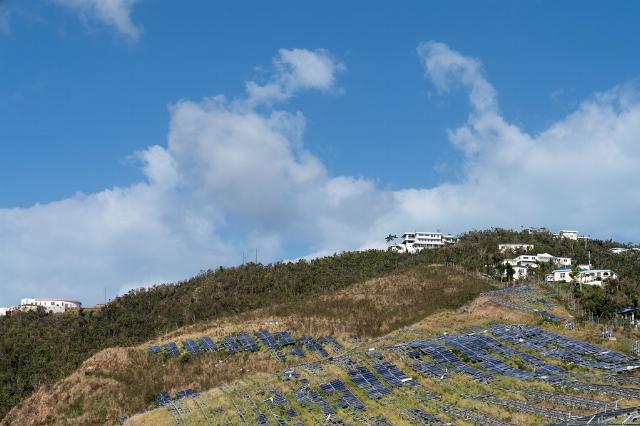Climate change and solar fields don’t mix
I just ran across a news story about a massive solar “farm” in Texas destroyed by hail. I will use the word “farm” only twice in this article in association with solar panels because that’s what everyone likes to call it, but putting solar panels on a vacant field is an insult to “farming,” so I’m going to call it a solar field instead.
I then internet-searched “hailstorm destroys solar farm” (that’s the last time I’m using those two words together) and clicked on “Images.” Stunning is the only word that comes to mind. This is not the first time delicate solar fields have been destroyed by nature -- it’s happening all over.
But wait! “Anthropogenic climate change” causes more frequent and more harsh hailstorms according to published studies like this one:
Hailstorms are dangerous and costly phenomena that are expected to change in response to a warming climate. In this Review, we summarize current knowledge of climate change effects on hailstorms. As a result of anthropogenic warming, it is generally anticipated that low-level moisture and convective instability will increase, raising hailstorm likelihood and enabling the formation of larger hailstones; the melting height will rise, enhancing hail melt and increasing the average size of surviving hailstones; and vertical wind shear will decrease overall, with limited influence on the overall hailstorm activity, owing to a predominance of other factors.
All those broken pieces of solar panels scattered all over the ground now creates the possibility of groundwater contamination, since solar panels can leach toxic materials
“…solar panels contain toxic materials like lead that can leach out as they break down, landfilling also creates new environmental hazards.”
I live in Northern Indiana, and we have hail frequently. We also have a new solar field just a stone’s throw away from my shop. The effect of a hailstorm on that field crossed my mind, but now it’s front-and-center since we also rely on groundwater here. I do not want to depend on this thing if bad weather, a normal occurrence, can simply knock it out and when it does, my clean groundwater is now threatened. No thank you, I’ll take my chances with reliable hydroelectric, coal, and nuclear.

Image: Lorie Shaull
FOLLOW US ON
Recent Articles
- Why Do Democrats Hate Women and Girls?
- There is No Politics Without an Enemy
- On the Importance of President Trump’s ‘Liberation Day’
- Let a Robot Do It
- I Am Woman
- Slaying the University Dragons
- Canada Embraces European Suicide
- A Multi-Point Attack on the National Debt
- Nearing the Final Battle Against the Deep State
- Now’s the Time to Buy a Nuke (Nuclear Power Plant, That Is)
Blog Posts
- So Milley was running the whole Ukraine war with Russia without telling the public -report
- New York’s ‘clean energy’ demands are unattainable, per industry’s own experts
- Astronauts carefully tell the truth
- California voters introduce new health care ‘access’ ballot initiative named after Luigi Mangione
- ‘American Oversight’? What a joke!
- Pete Hegseth in the line of fire—again
- Canadian Prime Minister Mark Carney is accused of plagiarizing parts of his Oxford thesis
- France goes the Full Maduro, bans leading opposition frontrunner, Marine Le Pen, from running for the presidency
- Bob Lighthizer’s case for tariffs
- An eye for an eye, an order for order
- Peace on the Dnieper?
- Tesla protestor banner: 'Burn a Tesla, save democracy'
- Pro-abortionists amplify an aborton protest's impact
- A broken system waiting to crash
- The U.S. Navy on the border






